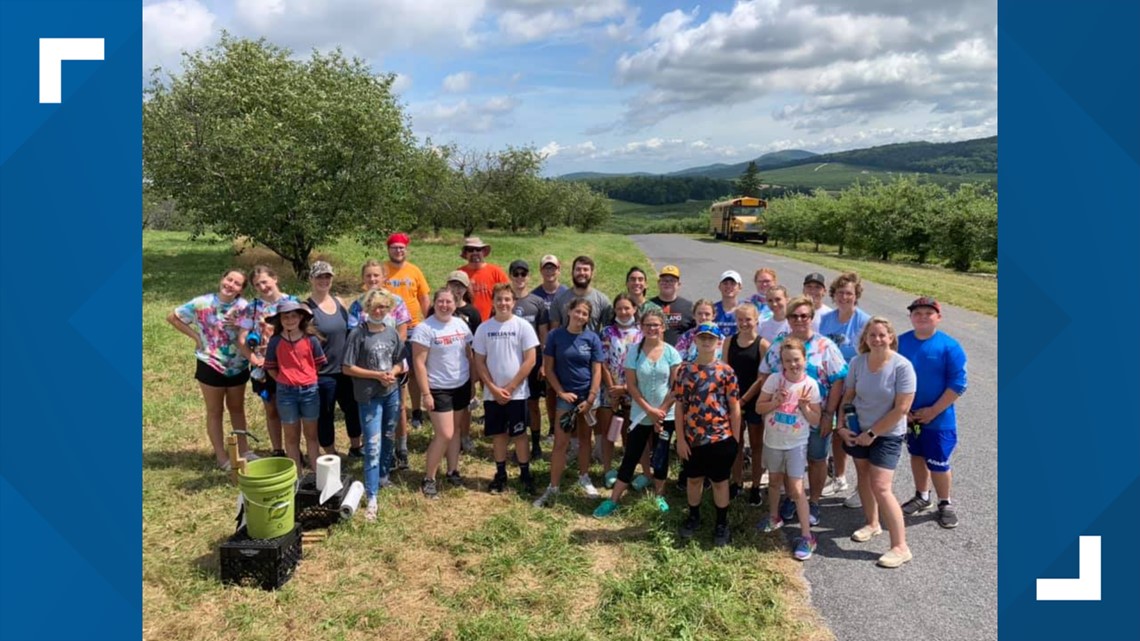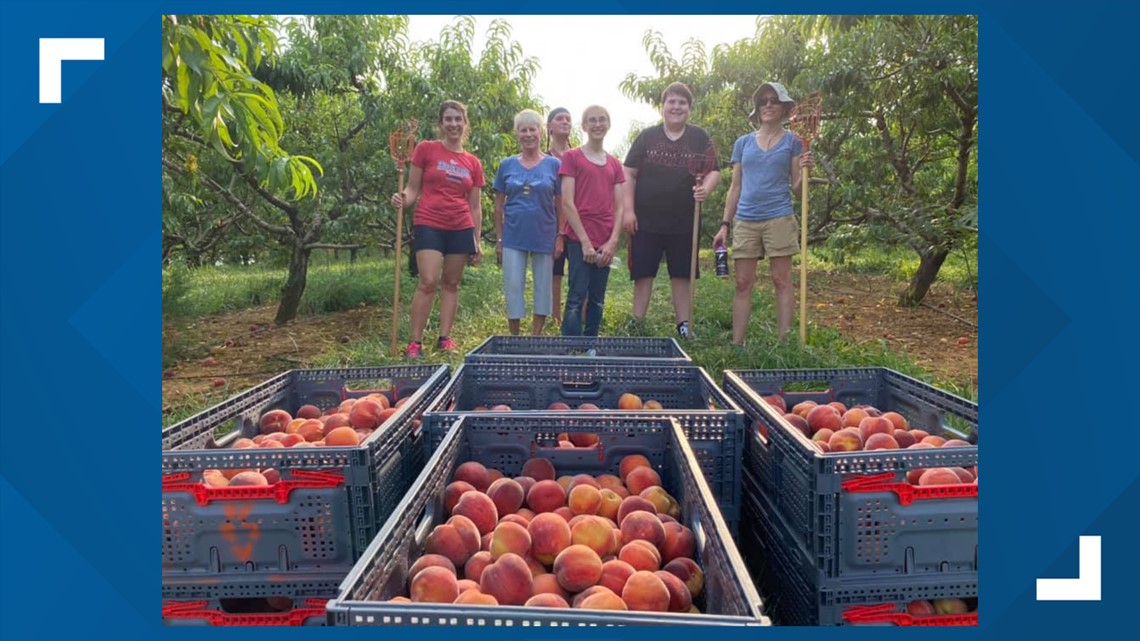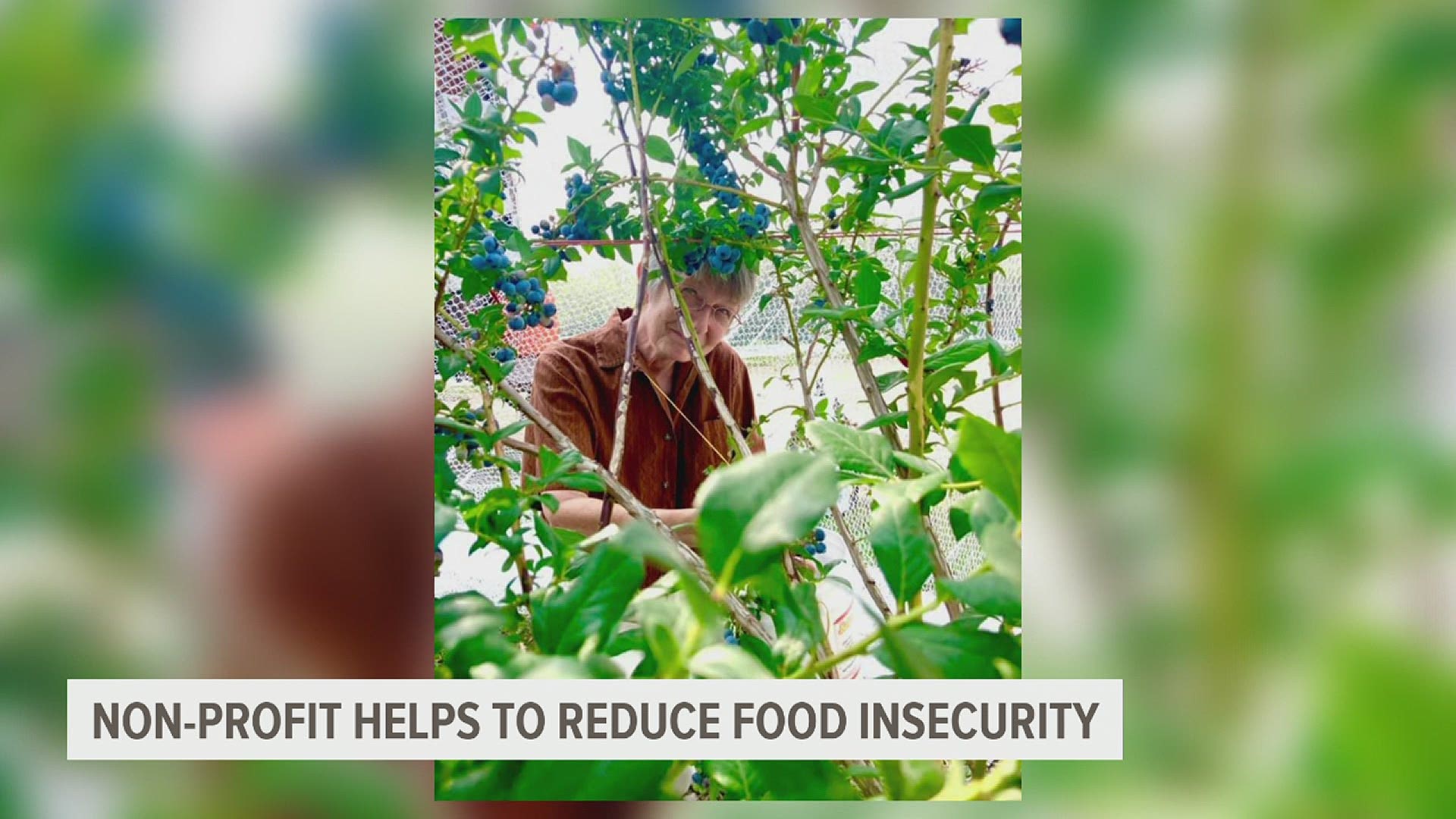PENNSYLVANIA, USA — The Gleaning Project of South Central Pennsylvania strives to provide a fresh and sustainable food system for low-income residents and reduce food loss on farms in Adams and Franklin counties
For those unfamiliar with gleaning, it means collecting leftover crops from fields that are not economically profitable to harvest.
Lori Mitchell, the gleaning coordinator of Adams County said the project has held thousands of people who were in need of food during the pandemic. In 2019,19,000 individuals were aided with the project's services and in 2020, over 35,000 people were assisted, according to Mitchell.
"The need is there, the need is growing and that's why it's so important to let people know that we are here," said Mitchell." We are definitely the support that the community needs."
The organization was started under the South Central Community Action Programs (SCCAP) food pantry in 2013. Many of the programs underneath the umbrella of SCAAP focus on reducing poverty.
Cory Hess, gleaning coordinator for Franklin County, said the need in the community for access to fresh foods and vegetables is very massive.
"It's a lot larger than what people think," said Hess. "So we can just take best use of the access food or to save it from being wasted, and you know give it to, to people who really need it."






The organization has volunteer opportunities and many other ways to get involved. In Adams County, 500 to 800 volunteers a year help with gleaning needs.
The organization is also hosting Glean-A-Mania in August. They're asking community members to pledge a penny for each pound of produce that is gleaned during the week of Aug. 8.
Bernie Armstrong, a gleaning assistant in Franklin County said residents should keep informing their friends and families to help grow the organization.
"It would be nice if the community just realized that we're here, maybe spread the word to other people that we're not partners with, so we can continue to expand," said Armstrong.
Officials at the project said agricultural excess is imperative and that means all hands should be on deck.
"Be a part of the community and be a part of the solution to help reduce food insecurity," said Mitchell.

